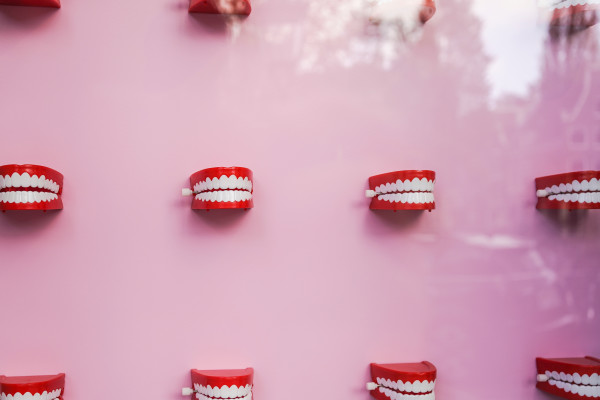Can you eat your PMT symptoms away?
2 years ago
Cycle syncing2 years ago
Cycle syncing
From fatigue to headaches, bloating to sore boobs, the Pre-menstrual Phase has been associated with over 150 symptoms. But is it really possible to minimise the bad ones by eating smarter? We go out to lunch with Jennis Physiologist, Dr Emma Ross...
Reviewed by: Dr Emma Ross
Whether you start craving carbs, your boobs double in size or you become disproportionately irritated by the way your partner stacks the dishwasher, we all have those tell-tale signs that indicate that we’re about to come on our periods.
For most of us, we accept these symptoms as part-and-parcel of the pre-menstrual process and shrug them off. But, what if we told you there were foodie things you can do to reduce the less desirable symptoms? Jennis Physiologist, Dr Emma Ross , delves into some wonder foods that can help.
“If you experience PMT, you’ve no doubt noticed that your mood sometimes drops in the lead-up to your period and a few days into your bleed,” says Emma. “This can be down to your levels of the serotonin (the happy hormone) declining as you enter that phase in your cycle,” says Emma.
“Egg white, edamame beans and white meat can all help to produce serotonin, but you’ll need to combine them with carbs such as brown rice or whole grain bread to absorb them efficiently and feel their lovely mood lifting effects.”
“If you tend to feel bloated before your bleed, this is usually due to hormonal changes taking place which can cause your body to retain more salt and water,” explains Emma.
“While it sounds counterintuitive, it’s important to keep your fluids up and drink plenty of water, otherwise your body will hold on to what water it has. You should also try to avoid salty and fatty foods, such as processed meats and ready meals."
During the second half of your cycle, including before your next period, blood sugar is less stable, which can lead to food cravings. “To help keep blood sugar, and therefore energy levels more stable across the day, eat regularly,” advises Emma, “snacking every three hours. You should also avoid high-sugar foods like fruit smoothies (which have a lot of fructose), which can spike your blood sugar levels and enhance cravings.
“Instead, opt for slow-release or whole grain carbs and protein. One of my favourite go-to’s is cottage cheese on oatcakes, but apple slices topped with peanut butter, a hard boiled egg sprinkled with chia seeds and hummus with carrots are other good alternatives.”
“If you’re struggling with anxiety, what you eat can have a big effect,” continues Emma, “but the key is to incorporate the following nutrition recommendations across your whole cycle, and not just in your PMT phase.
“Foods known to reduce inflammation in the body such as turmeric and ginger can do wonders, as well as Omega 3 fatty acids like salmon, tuna, chia seeds, walnuts and avocado which have been linked to anxiety reduction .
“Calcium and magnesium rich foods such as dark chocolate, natural yoghurt, bananas, whole grains and leafy greens can also help to nourish the nervous system and prevent anxiety, panic attacks and irritability .”
“It’s often tempting to reach for fast and convenience food to boost your energy levels, but this can leave you feeling more sluggish,” says Emma, “and alcohol, which may mask your fatigue short-term, can actually have a detrimental effect on your sleep and leave you feeling even worse than before.
“If you’re battling with fatigue, try starting the day with a high-protein breakfast like porridge with berries; peanut butter on wholegrain bread or scrambled eggs with spinach. “Easing off the caffeine can improve your sleep quality too, so if you hit an afternoon slump, switch out your regular cup of tea or coffee with a herbal or hot water and see if it makes a difference.”
*Giant caveat: At Jennis, we don't believe in fad diets or short-term fixes and believe that it's about improving your diet overall to have a positive effect at every phase.
Read: How to plan your fitness to make the most of your Pre-Menstrual Phase
 Cycle syncing
Cycle syncing Perimenopause
Perimenopause Perimenopause
Perimenopause Perimenopause
PerimenopauseSign up to learn everything you need to know about CycleMapping, plus how you can live better and feel better through optimising your fitness to you.
This website uses cookies to ensure you get the best experience on our website. Learn more

Sign up for the very latest news on women's fitness, health and hormones, plus be the first to receive exclusive offers and extras